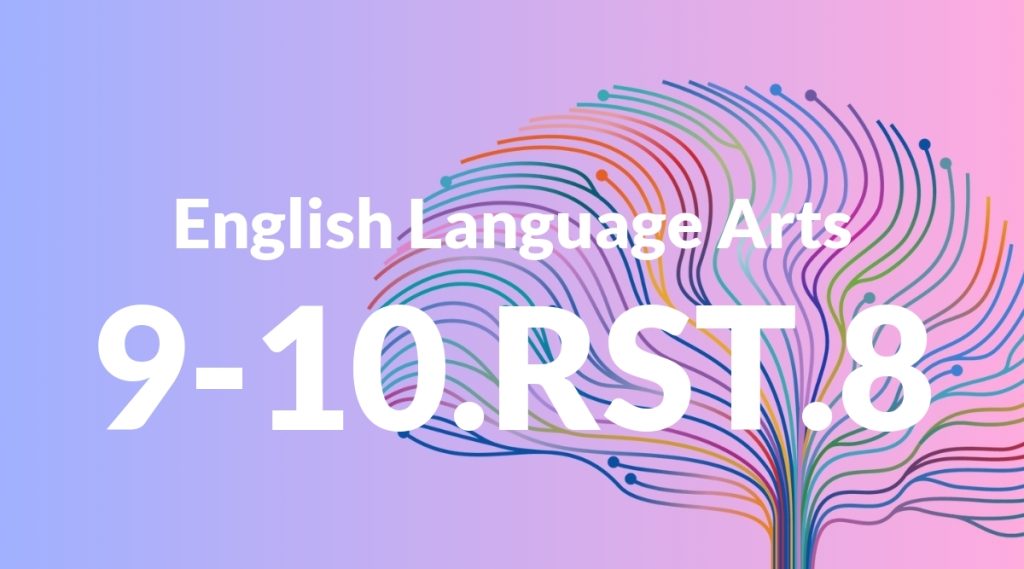Standard: 9-10.RST.8 – Assess the extent to which the reasoning and evidence in a text support the author’s claim or a recommendation for solving a scientific or technical problem.
Grade level: Grade 9-10
Subject: English Language Arts
Domain: Science & Technical Subjects
Teacher Overview
This standard focuses on students’ ability to critically assess the reasoning and evidence presented in scientific and technical texts. It is crucial for developing critical thinking and analytical skills, which are essential for success in higher education and professional fields. Students should have a foundational understanding of argumentation, including identifying claims, evidence, and reasoning. Familiarity with the structure and purpose of scientific texts is also necessary.
After mastering this standard, students will be better equipped to critically evaluate complex texts in various scientific and technical domains, preparing them for advanced studies and professional tasks that require rigorous evaluation of information.
Common Misconception 1
A common misconception is that all evidence presented in a text is equally valid. This is incorrect because the quality of evidence can vary significantly based on its source, methodology, and relevance.
Intervention 1
To address this misconception, provide students with examples of strong and weak evidence, and guide them through the process of evaluating the credibility and relevance of each piece of evidence.
Common Misconception 2
Another misconception is that the author’s claim is always correct if it is published. This is incorrect because published works can still contain biases or errors.
Intervention 2
Encourage students to critically evaluate the author’s claim by comparing it with other credible sources and considering potential biases. Teach them to question the validity of the claim rather than accepting it at face value.
Prerequisite Knowledge
Students should understand basic principles of argumentation, including claims, evidence, and reasoning. They should also be familiar with the structure of scientific texts and have basic analytical reading skills.
Subsequent Knowledge
Students will develop the ability to critically evaluate complex texts in various scientific and technical domains, enhancing their overall analytical and critical thinking skills. This will prepare them for advanced studies and professional tasks that require rigorous evaluation of information.
Instructional Activities
- Group discussions analyzing different types of evidence
- Individual assignments critiquing scientific articles
- Class debates on the validity of various claims
- Peer review sessions for evaluating lab reports
- Research projects comparing multiple sources on the same topic




